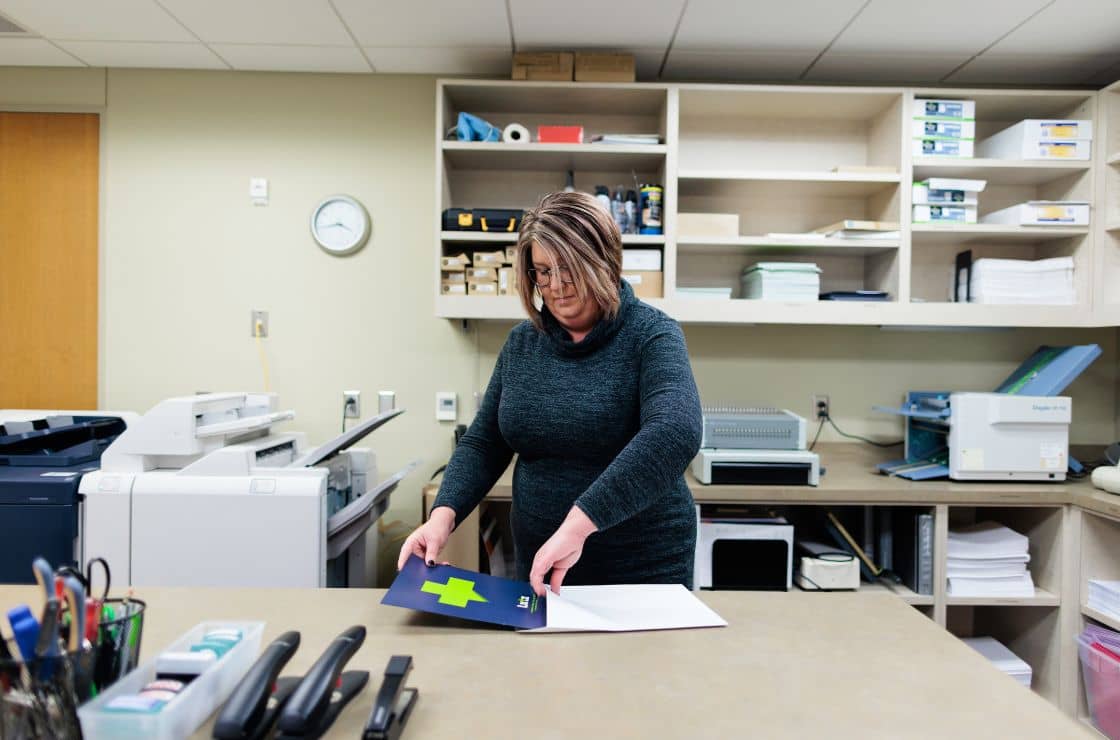Proposed CMS Lump Sum Payment to 340B Hospitals

The Centers for Medicare and Medicaid Services (CMS) is proposing a $9 billion lump sum payment to eligible 340b facilities in the Hospital Outpatient Prospective Payment System (OPPS) rule considering the Supreme Court ruling on June 15th, 2022. This lump sum payment is to compensate these facilities for underpayments related to the 340B program for nearly a 5-year period.
Reimbursement Rate History
Prior to 2018, the reimbursement rate for the covered drugs was a default of average sales price (ASP) plus 6%. In 2018, it was changed to ASP minus 22.5%. CMS stated this was to more accurately represent the actual costs incurred by hospitals acquiring 340B drugs. Other OPPS reimbursement rates were increased to maintain budget neutrality to offset the decrease in 340B payments.
The American Hospital Association (AHA) argued that the implementation of the lower 340B reimbursement rate was unconstitutional. The Supreme Court ruled in favor of AHA, agreeing that HHS did not have the right to change the reimbursement rates without reviewing hospitals’ drug acquisition costs. CMS did reinstate ASP plus 6% as of September 6th, 2022.
On July 7th, 2023, CMS issued a proposed rule that detailed how it would remedy the underpayments related to 340B. Comments on the rule were due by September 5th.
Payment Eligibility
Approximately 1,650 eligible hospitals will receive the $9 billion lump sum, with each facility’s amount determined by the calculation described in the ruling. CMS stated, “We believe this approach comes as close to providing 340B-covered entities with make-whole relief as CMS can reasonably accomplish, without the massive burden that would be associated with manually reprocessing all claims”. The $9 billion lump sum amount was figured by CMS as they believe facilities received $10.5 billion less in 340B payments. However, $1.5 billion has already been repaid through the reprocessed claims. Hospitals can view their estimated payments here.
Benefits for Healthcare Organizations
This $9 billion proposal carries immense significance, as it has the potential to alleviate the financial strain that many 340B hospitals have endured in recent years. These funds could serve as a lifeline, empowering these healthcare institutions to:
1. Expand Services
With additional financial resources at their disposal, 340B hospitals can consider expanding their range of healthcare services. This includes providing critical services to underserved communities, enhancing preventive care, and investing in advanced medical technologies.
2. Improve Patient Care
The proposed repayment could significantly improve patient care standards. Hospitals can use these funds to recruit and retain top-tier medical professionals, implement advanced healthcare protocols, and enhance the overall patient experience.
3. Upgrade Infrastructure
Often, 340B hospitals face challenges related to outdated infrastructure. This proposal could enable them to upgrade facilities, invest in state-of-the-art equipment, and ensure the healthcare environment is conducive to providing the highest quality care.
4. Support Vulnerable Communities
The heart of the 340B program lies in its mission to serve vulnerable and underserved communities. This repayment can help these hospitals fulfill this mission more effectively, reaching deeper into the communities they serve and addressing pressing healthcare disparities.
Proposal Implications
However, while this is good news for the 340B hospitals, CMS has stated that they still need to maintain budget neutrality. Since they increased other reimbursement in 2018 to account for the decrease in 340B payments, they estimate that facilities have been overpaid by $7.8 billion for non-drug items and services. As a result, they will be reducing the OPPS conversion factor by 0.5% starting in CY 2025. This reduction will continue for the following 16 years until $7.8 billion is recouped.
Many health advocacy groups view this proposal as both good and bad. They agree that CMS should make a lump sum payment to remedy the 340B underpayments from 2018-2022, many wanting CMS to add interest to these payments. However, the 0.5% reduction in other reimbursement will take a toll on facilities for years to come.
Many impacted facilities are not 340B hospitals and, therefore, will not be receiving a lump sum payment. The Association of American Medical Colleges and America’s Essential Hospitals (AEH) said, “The administration’s plan to cut nondrug payments to hospitals to achieve budget neutrality unnecessarily blunts the impact of the remedy by ensuring years of future underpayments.”
Looking Forward
In conclusion, the proposed $9 billion lump sum payment to eligible 340B facilities represents a significant step towards rectifying underpayments resulting from changes in reimbursement rates. This proposal holds the promise of providing much-needed financial relief to 340B hospitals, enabling them to expand services, enhance patient care, upgrade infrastructure, and better support vulnerable communities. However, it's crucial to acknowledge that this solution will be a complex balancing act as CMS strives to maintain budget neutrality. The road ahead will require careful consideration of the delicate balance between remedy and future sustainability within the healthcare landscape. If you have any questions, please contact us or learn more about our healthcare accounting and consulting services.
Sources:
https://www.hfma.org/payment-reimbursement-and-managed-care/medicare-payment-and-reimbursement/billions-of-dollars-in-lump-sum-payments-are-coming-to-340b-hospitals/
https://www.cms.gov/newsroom/fact-sheets/hospital-outpatient-prospective-payment-system-remedy-340b-acquired-drug-payment-policy-calendar
https://www.foley.com/en/insights/publications/2023/07/cms-remedy-340b-acquired-drug-payment-policy
Co-Author: Holly Doarthy

- Harmony, Woo, Communication, Maximizer, Achiever
Katie Roberts
Katie Roberts, Healthcare Director, began her career in 2015. She has gained specialized expertise in healthcare accounting and consulting while taking on leadership roles in training and development.
With her experience in healthcare financial management, Katie focuses on providing outsourced CFO services to rural hospitals and clinics. She delivers comprehensive solutions, including monthly financials, budgets, projections, and Medicare cost report guidance. Katie is dedicated to supporting rural healthcare facilities, recognizing their importance as essential service providers and key employers in their communities.
At Lutz, Katie’s commitment to excellence, combined with her ability to optimize processes, has helped strengthen the firm's reputation as a trusted advisor to critical access hospitals. Through her leadership, the healthcare consulting practice has expanded its reach while maintaining the personalized service that rural facilities depend on.
Katie lives in Davey, NE, with her husband Mason, son Cooper, dog Cali, and four chickens. Outside the office, she can be found boating, camping at their family’s cabin, golfing, and cheering on the Huskers.
Recent News & Insights
Lutz Named Top Consulting Firm in 2025 Omaha B2B Awards
Direct vs. Indirect Costs in the Construction Industry
Unconscious Bias in Recruitment: How to Overcome It
Lutz adds Peterson and Wayman




%20(1)-Mar-08-2024-09-22-41-1011-PM.jpg?width=300&height=175&name=Untitled%20design%20(5)%20(1)-Mar-08-2024-09-22-41-1011-PM.jpg)
%20(1)-Mar-08-2024-09-27-14-7268-PM.jpg?width=300&height=175&name=Untitled%20design%20(6)%20(1)-Mar-08-2024-09-27-14-7268-PM.jpg)

%20(1)-Mar-08-2024-09-11-30-0067-PM.jpg?width=300&height=175&name=Untitled%20design%20(3)%20(1)-Mar-08-2024-09-11-30-0067-PM.jpg)
%20(1)-Mar-08-2024-09-18-53-4361-PM.jpg?width=300&height=175&name=Untitled%20design%20(4)%20(1)-Mar-08-2024-09-18-53-4361-PM.jpg)
-Mar-08-2024-09-03-21-1119-PM.jpg?width=300&height=175&name=Untitled%20design%20(1)-Mar-08-2024-09-03-21-1119-PM.jpg)
-2.png?width=264&height=160&name=Website%20Featured%20Content%20Images%20(1)-2.png)
-Mar-08-2024-08-50-35-9527-PM.png?width=300&height=175&name=Untitled%20design%20(1)-Mar-08-2024-08-50-35-9527-PM.png)


.jpg)




